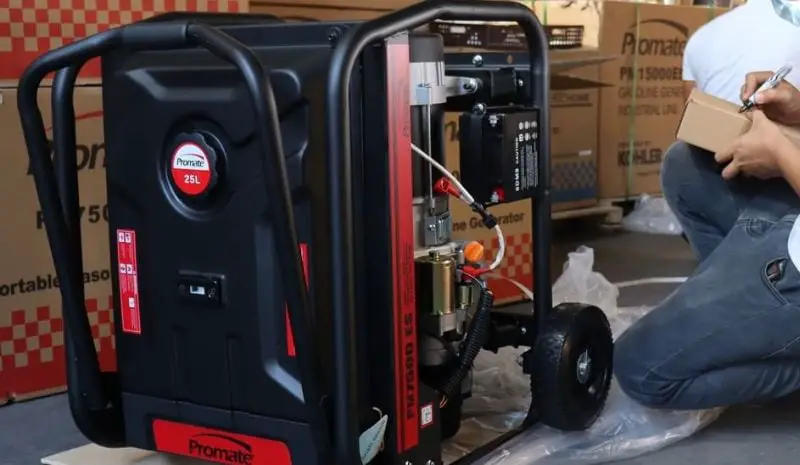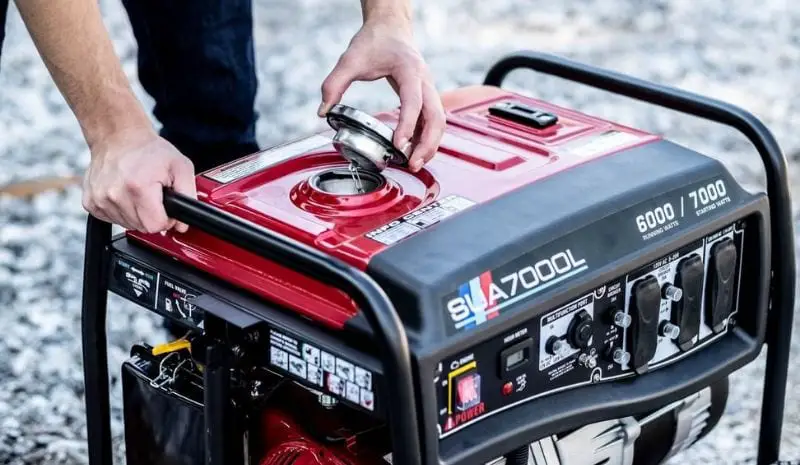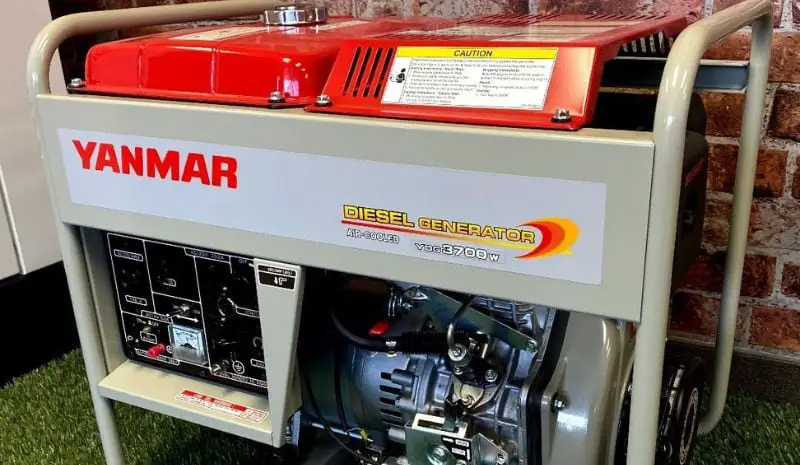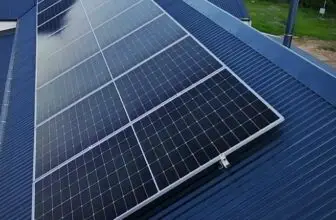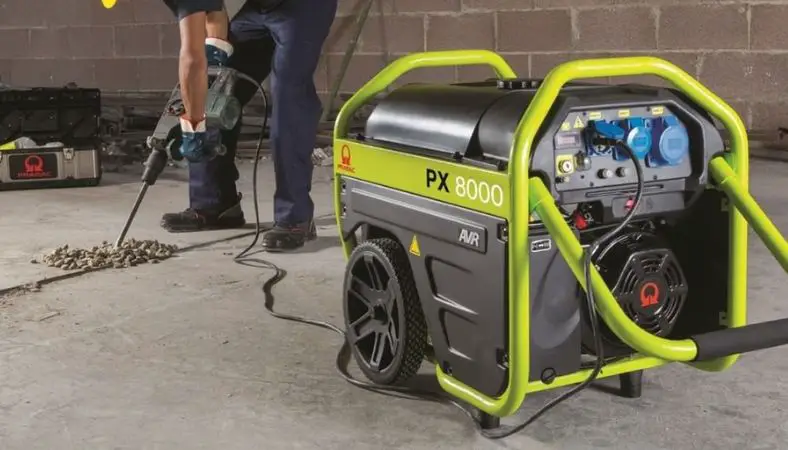
The generator surging is important because it can damage the generator and the electrical equipment. It can also cause a fire.
When a generator surges, it can be a sign that something is wrong. Understanding why the generator is surging can help you troubleshoot and fix the problem.
What Is a Generator Surging?
Contents
A generator surging is a problem that can occur when an AC generator supplies power to a load. The problem is caused by the sudden change in the load on the generator, which can cause the generator to change speed. This can cause the generator to produce more or less power than the load requires, resulting in fluctuations in the voltage and current supplied.
Causes: Why Is a Generator Surging?
A generator can surge for a variety of reasons. One common cause is a sudden increase in load. This can happen if a large appliance is turned on or several smaller appliances are turned on simultaneously. The generator will try to meet the increased demand by running faster, which can cause it to surge.
Another common cause of power surging is dirty or faulty spark plugs. When the spark plugs are dirty, they can cause the engine to misfire. This can cause the engine to run erratically, leading to surging. Faulty spark plugs can also cause surging. If the spark plugs are not firing correctly, the engine will not run smoothly, which can lead to surging.
The third cause of surging is low oil levels. If the oil level in the engine is low, it can cause the engine to run erratically. This can lead to surging.
The fourth cause of surging is a dirty air filter. If the air filter is dirty, it can restrict the airflow to the engine. This can cause the engine to run lean, leading to surging.
The fifth cause of surging is a sticking choke. If the choke is sticking, it can restrict the airflow to the engine. This can cause the engine to run lean, leading to surging.
The sixth cause of surging is a fuel system problem. If the fuel system is not delivering the correct amount of fuel to the engine, it can cause the engine to run lean, which can lead to surging.
The seventh cause of surging is an ignition system problem. If the ignition system is not delivering the correct amount of spark to the engine, it can cause the engine to misfire, leading to surging.
The eighth cause of surging is a problem with the governor. The governor is a device that controls the speed of the engine. If the governor is not working correctly, it can cause the engine to run at too high of a speed, leading to surging.
The ninth cause of surging is a problem with the carburetor. If the carburetor is not delivering the correct fuel to the engine, it can cause the engine to run lean, which can lead to surging.
The tenth cause of surging is a problem with the exhaust system. If the exhaust system is restricted, it can cause the engine to run too hot, leading to surging.
How to Fix a Generator Surging?
- When a generator is surging, the first thing you should check is the fuel level. If the fuel level is low, add more fuel and check the oil level. If the oil level is low, add more oil.
- Next, check the air filter. If the air filter is dirty, clean it or replace it.
- If the generator is still surging, check the spark plugs. If the spark plugs are dirty, clean or replace them.
- If the generator is still surging, check the carburetor. If the carburetor is dirty, clean or replace it.
- If the generator is still surging, take it to a qualified technician for further diagnosis and repair.
Frequently Asked Question
How Do I Stop My Generator from Surging?
You can do to help stop your wild surging generator. One is to make sure the load on the generator is balanced. You can do this by connecting the same load to each phase. You can also install an automatic voltage regulator. This will help keep the voltage stable and prevent the generator from surging.
Why Is My Generator Voltage not Stable?
There are a few potential reasons why your generator voltage may not be stable. One possibility is that the generator is not functioning properly and is not providing a stable voltage. Another possibility is that the wiring or connection between the generator and the rest of the system is not properly functioning, which can cause fluctuations in the voltage. Additionally, if there is a problem with the electrical load being powered by the generator, this can also cause fluctuations in the voltage.
What Are Voltage Fluctuation And Flicker?
Voltage fluctuations and flicker are two separate issues. Voltage fluctuations are simply a change in the voltage level of an electrical current. This can be caused by several factors, such as a change in the load on the circuit, a change in the electrical supply, or a problem with the wiring. Flicker, on the other hand, is a change in the brightness of electrical light. This is usually caused by a change in the voltage level and can be very annoying, especially if it is constant.
How did Do Surge Tank Systems work?
A surge tank system is a hydraulic system that uses a surge tank to store energy and release it when needed. The surge tank is a container filled with fluid and then pressurized. When the fluid is pressurized, it is forced into a pipe that leads to the hydraulic system. When the hydraulic system needs energy, the fluid is released from the surge tank and flows through the system. This system is used in many automotive, aerospace, and manufacturing industries.
Conclusion
It’s important to figure out why your generator surging with no load. Surging can be caused by several factors, including a dirty or faulty spark plug, a dirty air filter, or a problem with the carburetor. It can also be caused by a problem with the fuel system, such as a dirty fuel filter or a clogged fuel line. If unsure what’s causing the problem, take it to a qualified mechanic or dealer for diagnosis and repair.

